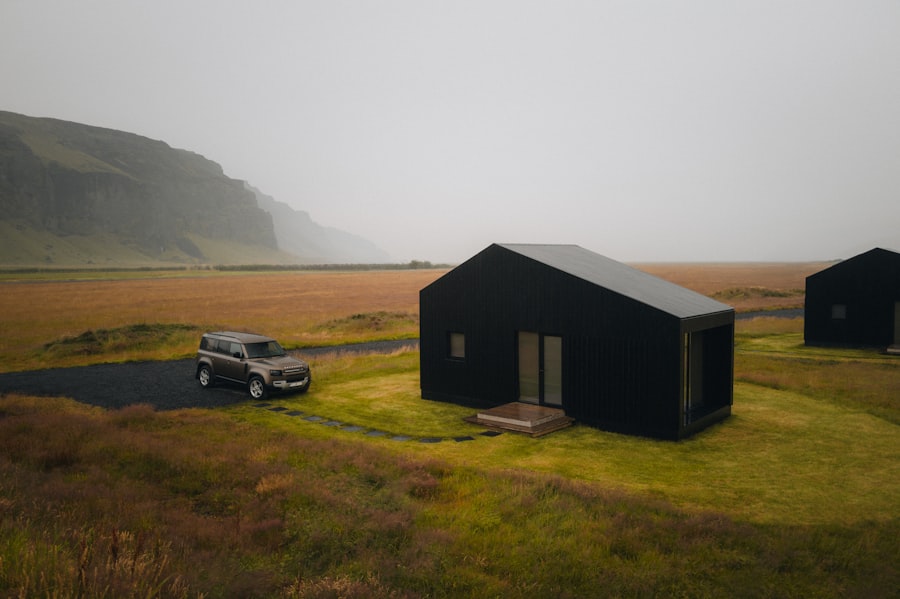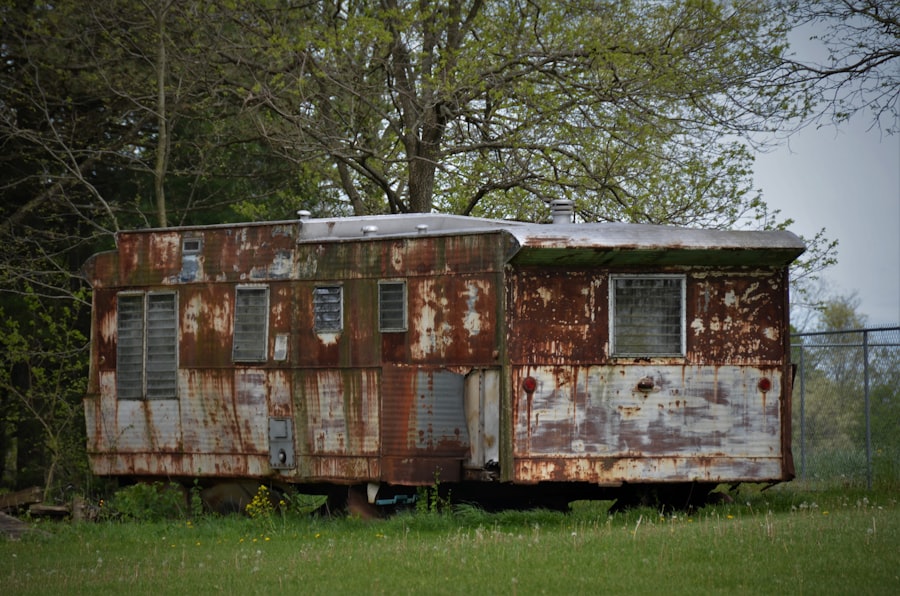Single wide mobile homes, often referred to as single-section homes, represent a unique segment of the housing market that has gained popularity for their affordability and flexibility. These homes are typically 18 feet or less in width and can range from 60 to 90 feet in length, making them a compact yet functional living space. The design of single wide mobile homes allows for efficient use of space, often featuring an open floor plan that maximizes the available square footage.
This type of housing is particularly appealing to individuals and families seeking a cost-effective solution to homeownership without sacrificing comfort or style. The history of mobile homes dates back to the early 20th century, with significant advancements in design and construction occurring over the decades. Initially, these homes were viewed as temporary or transient living solutions, but modern single wide mobile homes have evolved into permanent residences that offer a range of amenities and features comparable to traditional homes.
With the rise of the tiny house movement and a growing emphasis on minimalism, single wide mobile homes have found their niche as a viable option for those looking to downsize or simplify their living arrangements.
Key Takeaways
- Single wide mobile homes are a popular housing option that offers affordability and flexibility for homeowners.
- Living in a single wide mobile home provides benefits such as lower cost of living, mobility, and a sense of community.
- When comparing costs, single wide mobile homes are generally more affordable than traditional homes, both in terms of upfront costs and ongoing expenses.
- Maintenance and upkeep of single wide mobile homes are generally more manageable and cost-effective compared to traditional homes.
- Single wide mobile home parks offer a sense of community and shared amenities, making them an attractive option for many homeowners.
Benefits of Living in a Single Wide Mobile Home
One of the most significant benefits of living in a single wide mobile home is affordability. The initial purchase price of these homes is generally much lower than that of traditional site-built houses, making them an attractive option for first-time homebuyers or those on a tight budget. Additionally, the lower cost of living associated with single wide mobile homes extends beyond the purchase price; utility bills tend to be lower due to the smaller square footage, and property taxes are often significantly reduced compared to traditional homes.
Another advantage is the flexibility that single wide mobile homes offer. Many buyers appreciate the ability to place their home in various locations, whether in a mobile home park or on private land. This flexibility allows homeowners to choose a setting that best suits their lifestyle, whether it be near urban amenities or in a more rural environment.
Furthermore, single wide mobile homes can be an excellent option for those who value community living, as many parks foster a sense of camaraderie among residents through shared amenities and social events.
When comparing the costs associated with single wide mobile homes and traditional homes, the differences are striking. The average price of a new single wide mobile home can range from $40,000 to $80,000, depending on size and features. In contrast, the median price of a traditional single-family home in the United States often exceeds $300,000.
This stark contrast makes single wide mobile homes an appealing choice for those looking to enter the housing market without incurring substantial debt. Moreover, financing options for single wide mobile homes can be more accessible than those for traditional homes. Many lenders offer specialized loans for manufactured housing, which can include lower down payment requirements and more lenient credit score criteria.
This accessibility can make it easier for individuals with limited financial resources to secure a home loan and achieve homeownership. Additionally, the lower ongoing costs associated with single wide mobile homes—such as insurance premiums and maintenance expenses—further enhance their appeal as a budget-friendly housing option.
Maintenance and Upkeep of Single Wide Mobile Homes

Maintaining a single wide mobile home requires attention to detail and an understanding of the unique aspects of manufactured housing. One key consideration is the foundation; many single wide homes are placed on piers or blocks rather than traditional concrete foundations. This means that homeowners must regularly check for settling or shifting and ensure that the home remains level to prevent structural issues.
Regular inspections can help identify potential problems early on, allowing for timely repairs that can save homeowners money in the long run. Another important aspect of maintenance involves the exterior of the home. Single wide mobile homes often feature siding materials such as vinyl or aluminum, which require periodic cleaning and inspection for damage.
Homeowners should also pay attention to roofing materials; many single wide homes have shingle roofs that need to be checked for wear and tear after severe weather events. By staying proactive with maintenance tasks, homeowners can extend the lifespan of their mobile home and maintain its value over time.
Community Living: Single Wide Mobile Home Parks
| Metrics | Data |
|---|---|
| Number of Single Wide Mobile Home Parks | 100 |
| Average Lot Size | 5,000 square feet |
| Median Monthly Rent | 500 |
| Percentage of Owner-Occupied Units | 60% |
Living in a mobile home park can offer a unique sense of community that is often absent in traditional neighborhoods. Many parks are designed with shared amenities such as playgrounds, swimming pools, and community centers that encourage social interaction among residents. This communal atmosphere can be particularly beneficial for families with children or retirees looking for companionship and support within their living environment.
Additionally, mobile home parks often provide a level of security and convenience that appeals to many residents. Many parks have gated entrances or on-site management that enhances safety and fosters a sense of belonging among residents. The close-knit nature of these communities can lead to lasting friendships and support networks, making it easier for individuals to navigate life’s challenges together.
For those who value social connections and community engagement, living in a single wide mobile home park can be an enriching experience.
Customization and Upgrades for Single Wide Mobile Homes
One common misconception about single wide mobile homes is that they lack customization options compared to traditional houses. In reality, many manufacturers offer a variety of floor plans and design features that allow homeowners to personalize their living spaces according to their tastes and needs. From choosing cabinetry styles and countertops to selecting flooring materials and paint colors, buyers have numerous opportunities to create a home that reflects their individual style.
Beyond initial customization, homeowners can also make upgrades over time to enhance their living experience. Popular upgrades include energy-efficient windows, modern appliances, and improved insulation, which can lead to significant savings on utility bills while increasing comfort levels within the home. Outdoor enhancements such as decks or patios can also expand usable living space and create inviting areas for entertaining guests or enjoying quiet evenings outdoors.
Financing Options for Single Wide Mobile Homes

Financing a single wide mobile home can differ significantly from securing a mortgage for a traditional home. While conventional loans may not be available for manufactured housing, there are several financing options specifically designed for this type of property. One popular choice is a chattel loan, which is secured by the home itself rather than the land it sits on.
Chattel loans typically have shorter terms and higher interest rates than traditional mortgages but can be easier to obtain for buyers with limited credit histories. Another financing option is obtaining a personal loan or using savings to purchase the home outright. This approach eliminates monthly mortgage payments but may require substantial upfront capital.
Additionally, some buyers choose to finance their purchase through the manufacturer or dealer, which can provide flexible terms tailored to individual circumstances. Understanding these various financing avenues is crucial for prospective buyers looking to navigate the complexities of purchasing a single wide mobile home.
Tips for Finding and Purchasing Affordable Single Wide Mobile Homes
Finding an affordable single wide mobile home requires diligence and research. One effective strategy is to explore local listings through online platforms dedicated to manufactured housing sales or real estate websites that feature mobile homes. Additionally, visiting local dealerships or manufacturers can provide insight into available models and pricing options while allowing potential buyers to view homes in person.
Networking within communities or social media groups focused on mobile home living can also yield valuable information about available properties or upcoming sales. Many individuals share their experiences and recommendations regarding reputable dealers or parks that offer competitive pricing. Furthermore, attending local housing fairs or expos can provide opportunities to connect with industry professionals who can assist in finding affordable options tailored to specific needs.
In conclusion, navigating the world of single wide mobile homes offers numerous benefits ranging from affordability to community living opportunities. By understanding the unique aspects of these homes—including maintenance requirements, financing options, and customization possibilities—prospective buyers can make informed decisions that align with their lifestyle preferences and financial goals.

